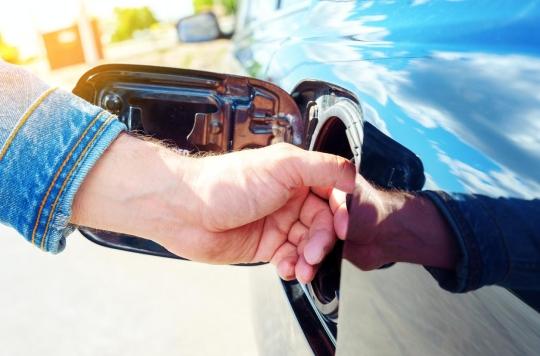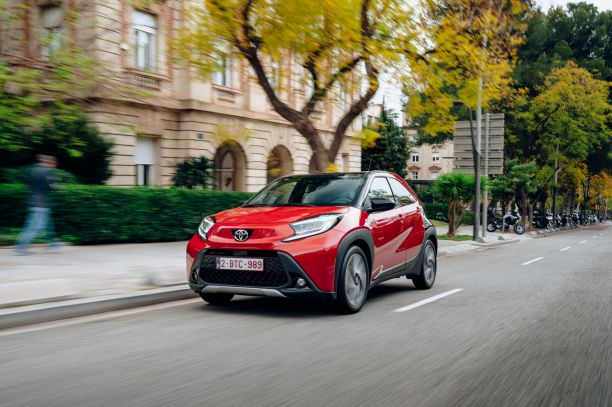
Convert heat engines to hydrogen? This alternative to 100% electric is of great interest to Toyota. After modifying a three-cylinder GR Yaris to accept this fuel, the Japanese brand asked Yamaha to work on adapting the Lexus 5-litre V8.
Electric or nothing: this is the position of many political players, starting with the European Commission, for the future of the automobile. Willy-nilly, most manufacturers seem to have resigned themselves to this situation. Some even engage in a competition of who will stop the sale of combustion engines the soonest! But some discordant voices were heard all the same, starting with that of Akio Toyoda, the boss of the world’s largest automotive group, Toyota. Even if the Japanese giant recently announced the launch of a slew of electric cars by 2030, going so far as to patent an atypical manual gearbox adapted to this type of vehicle, it is working in parallel on other solutions that could ensure the survival of combustion engines.
A partnership started in 1967


Last year, the brand had thus aligned in the race a Corolla equipped with a three-cylinder GR Yaris modified to run on compressed hydrogen. Then a few months later, a road-going GR Yaris prototype with the same engine was unveiled. The project is therefore to be taken seriously, as confirmed by Yamaha’s presentation of a V8 capable of using this gas. Partner of Toyota since its first sports car, the extremely rare 2000 GT, launched in 1967, the Japanese company has this time taken as its base one of the last atmospheric eight-cylinders on the market: the 5 l of the Lexus RC F and LC coupes.


To adapt it to this new fuel, modifications had to be made to its injectors, its intake manifold or even its cylinder head. Power decreases slightly in operation, dropping from 481 hp in Japan to 450 hp. But the torque gains 5 Nm, to reach 540 Nm, a value available from 3,600 rpm, instead of 4,800 rpm for the unleaded version.
Always captivating engine sound

The operation remains almost identical to that of a conventional heat engine, with in particular a sound that is always bewitching. A characteristic dear to many driving enthusiasts, and which risks disappearing with battery-powered electricity as with the hydrogen fuel cell, two technologies that are silent by nature. Yamaha, which had been commissioned by Lexus to make the LFA one of the most melodious supercars of all time, thus evokes “the high harmonic frequencies produced by the engine’s 8-into-1 exhaust manifold”. The company also claims that everyone who drove its prototype got out “with a big smile on his face at the end” . A great driving enthusiast, Akio Toyoda was certainly one of them!
Hydrogen cleanliness controversial


On many points, this project therefore joins that of Porsche with its synthetic fuels. If it requires more mechanical modifications than with the German manufacturer, whose eFuel could even power current models, the hydrogen V8 makes up for it with CO emissions.2 announced as almost nil at the exhaust. Unfortunately, nothing says for the moment that the authorities around the world will allow this type of alternative to 100% electric to live. The cleanliness of the production of this gas has indeed frequently been called into question, in particular by certain environmental associations, because it is most often based on fossil fuels. It will therefore be necessary at all costs for the production of hydrogen to be ensured in a more renewable way, as is already sometimes the case today, to see the European Commission approve such a project. But it has the merit of giving hope to all those who fear seeing the varied pleasures of the internal combustion engine disappear forever.
READ ALSO
- Toyota introduces three-cylinder hydrogen gas fuel
- Toyota GR Yaris H2: the bomb that runs on hydrogen
- Hydrogen: the cleanliness of its production called into question
- Toyota considering manual transmission in electric cars

















